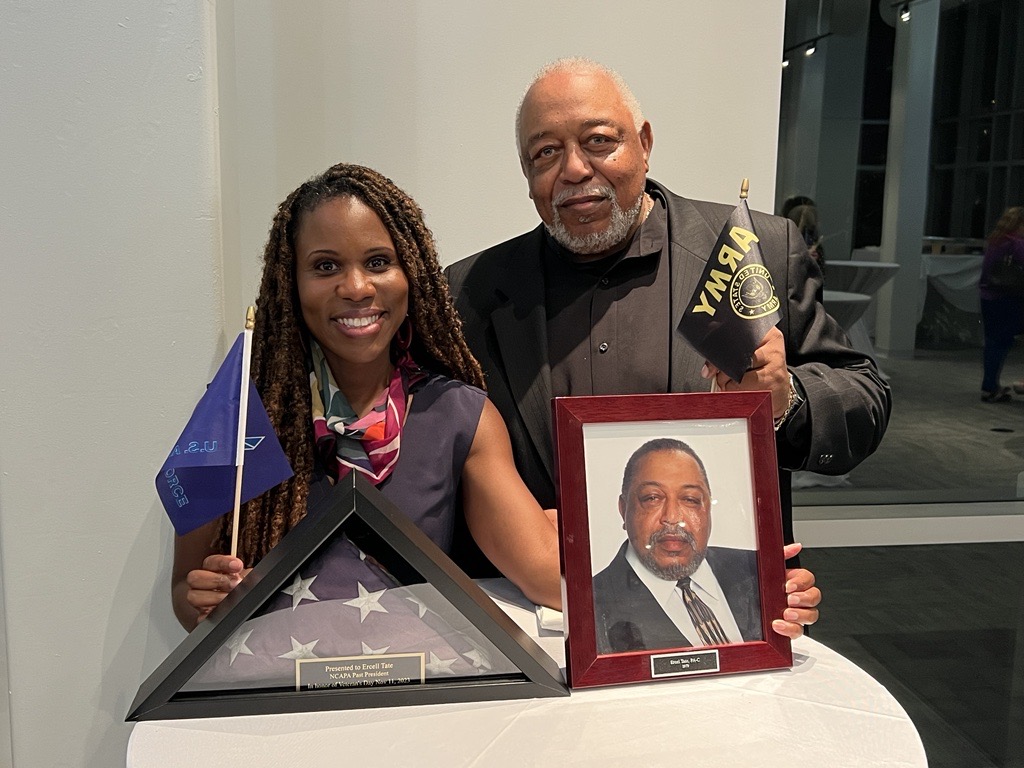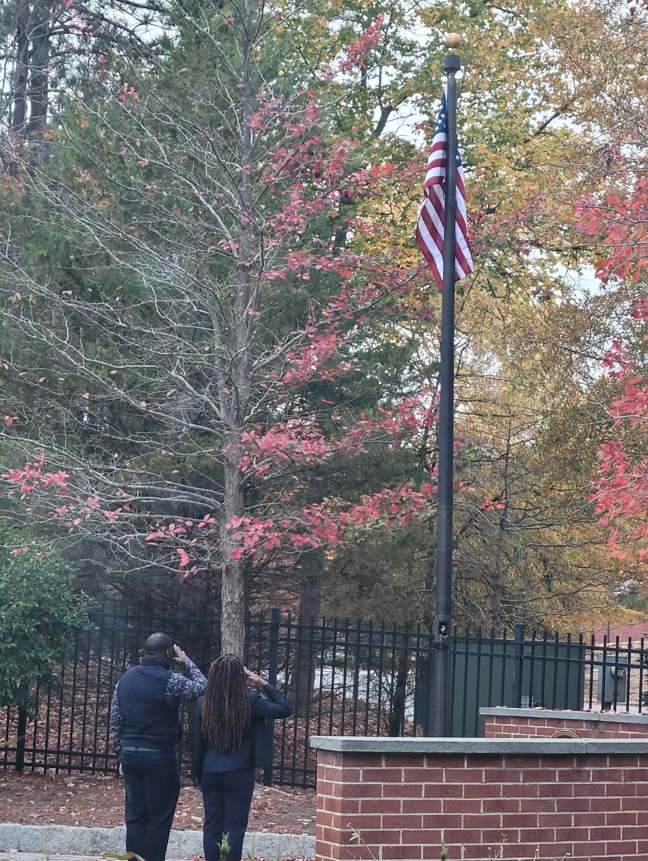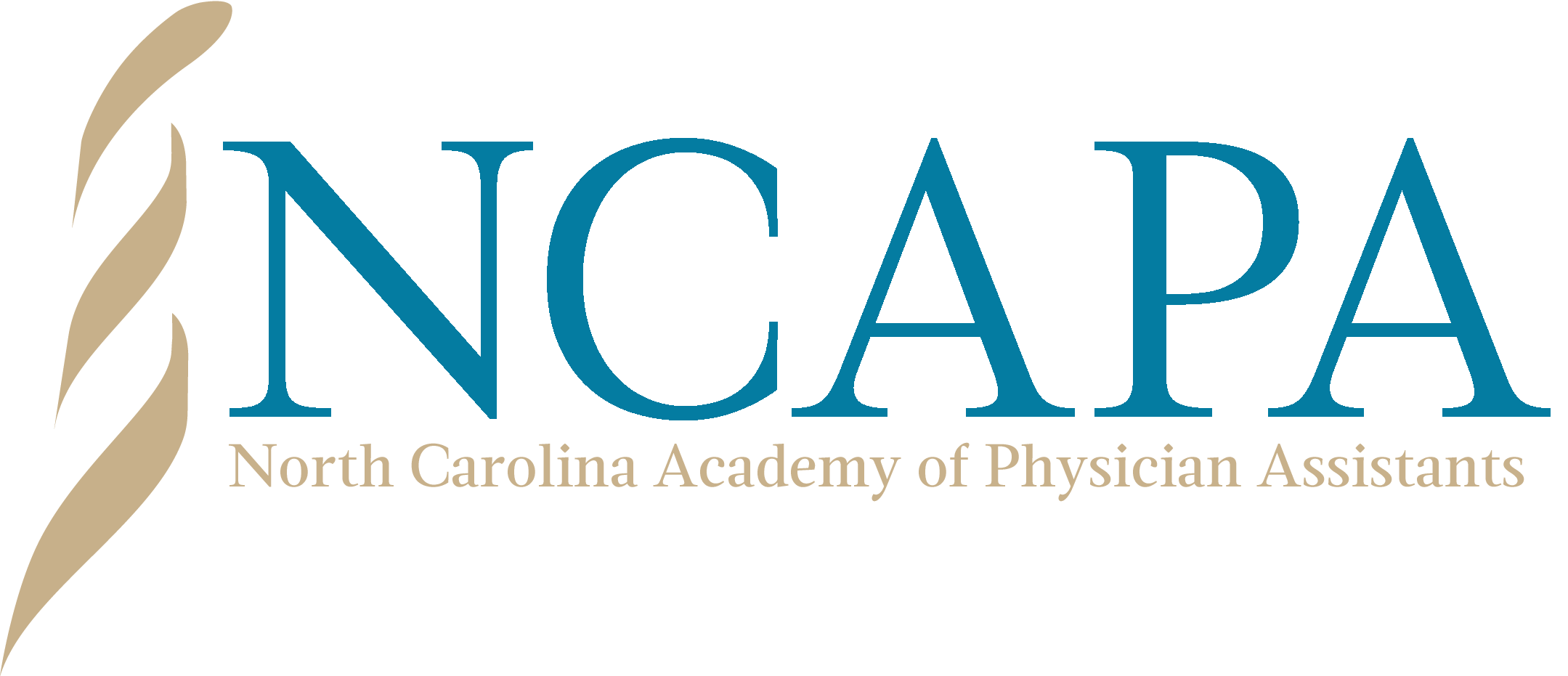In honor of Veterans Day, the North Carolina Academy of Physician Assistants (NCAPA) recently spoke with Ercell Tate, PA-C, who is a Wake Forest PA Program graduate, NCAPA past president, and proud veteran. The NCAPA had the honor of reflecting with PA Tate, who was the third president of the organization, on his early years as a PA student, early-career PA, and as a pioneer for the profession, paving the way and paying it forward for the future generations.

How did you begin your PA journey?
“When I was getting out of the military, one of my sergeants encouraged me to continue with something in medicine, since I had all of the basic training. I started applying to all of the different medical schools. I was accepted at Wake Forest University’s PA Program.”
“I first went to Wake Forest by myself, apart from my wife and kids, during school. However, living apart from my family was hard. I actually went to Dr. Katherine Anderson, who was the administrator at the time and told her I thought I would have to drop out of school due to the living situation and being apart from my family. She said, ‘No, we’ll figure something out for you.’ She got us into campus housing while we looked for a place to live. She helped my wife, who was a nurse, get established at Baptist Hospital while I was in PA school. She even talked to the local nurseries about enrolling our kids. Wake Forest has done a lot for my family and to help maintain my enrollment in the PA program while supporting my family. After we had moved back to the Greensboro area upon retiring, my wife and I asked ourselves, ‘What can we do to pay this forward?’”
“I had a son who passed away, and my wife and I decided to start a scholarship in his honor. My wife and I spoke to Wake Forest’s PA program about developing a scholarship and diversity program for minority males. We knew we wanted to do something to help increase minority representation within the PA program. We’ve had two graduates and scholarship awardees so far, and we stay in touch with them to support, advise, and encourage.”
What were some of the core lessons you learned during your PA training?
“One of the things I’ve learned is to be compassionate and to be patient. Back in 1971, there was still a lot of segregation in North Carolina. I was the only minority in my class. There were a lot of places, offices, and floors where I could go to and observe but not practice. However, I knew there were those that needed what I could learn and what I could provide, so long as I was patient enough to learn it. I would go across town, leave Baptist Hospital, and go to Katie B. Reynolds, which was a Black hospital, to get the opportunity to exercise what I had learned. So, one of the main things that I learned was to be patient and compassionate, in order to bring the knowledge that I was learning across town to help my people. That’s really what it was all about for me – to be able to go to the underserved areas and provide the medical services for folks that did not have access to it or could not afford it. The main thing was being able to give my people pride, respect, and honor by providing quality medical care for them.”
After you graduated, what was it like being a PA?
“Well, I was the first PA period in the little city I worked in – black or white. I had to do the work to educate the people what a PA even was. I did a preceptorship with the physician I had worked with, and once I was hired to work alongside him, he put an article in the local newspaper explaining my role and my goals as a healthcare professional coming in. So, when I came in as the first PA in the hospital – much less a minority PA – I had to do a good bit of educating and training on the PA’s role. With everybody I worked with, we had to collaborate to develop rules and guidelines with an emphasis on continuity, as the profession started to take hold and grow. It was a learning experience once I graduated from the PA program, and for several years after, with the process of gaining recognition and acceptance within the medical field. When I first started out, we couldn’t write prescriptions. Then, it came to be where the physicians would need to cosign them, which then shifted to being able to sign only for certain drugs. It was a learning process for everyone involved, not just for the patients, but for the other physicians, pharmacists, nurses, and the whole team. We’ve come a long way.”
Can you reflect on the NCAPA’s growth as a past organization president?
“I have been really impressed with the accomplishments and progress of the PA profession in North Carolina. Everyone that I speak with is aware and is very receptive of PAs, complimenting the knowledge and compassion that they receive from the PAs that they see. So, it has really grown from where I first started out, and the progress has exceeded my expectations. I frequently attend conferences and attend the alumni lunches hosted by Wake Forest, and each year, I see the numbers increase. You see the knowledge of the students, the qualities of programs, the excitement of alumni – and all of this combined make me so incredibly proud to be a PA.”
Do you think NC PAs can benefit from joining an organization like the NCAPA?
“Yes, I think there is definitely support in numbers, as well as knowledge and diversity. I also think that there is healthy competition in numbers that allow us to grow, learn, and help each other to strive towards the same goal. It helped programs come together for feedback and improvement, and to better their training programs for future PA generations. That is one of the reasons that the NCAPA was started – for unity, development, and collaboration across the growing number of PA programs across the state.”
If you were not a PA, what would you be doing instead?
“That is a hard one! Ever since I can remember, I wanted to be in medicine. But if I was not a PA, I would probably be working in the military, providing for, and protecting my country. I have a lot of loyalty for my country for what they have provided for me, and I’d pay it forward.”
Anything else you’d like to include?
“I am just so proud that the NCAPA has come so far. I am so proud to see it working the way it is, and I hope the progress stays headed in the right direction for the betterment of PAs in North Carolina and beyond.”
A Special Veterans Day Commemoration

The NCAPA held a very special Veterans Day Commemoration at the Stead Center in Durham, NC this past weekend. On Veterans Day, the NCAPA retired the flag that was dedicated on the 50th anniversary of the profession. NCAPA President-Elect and veteran, Andrea McKinnond, PA-C raised a new flag that now stands over the Stead Center Memorial Garden. She also presented the retired flag to Ercell Tate, PA-C, one of the first NCAPA presidents and proud veteran.

Additionally, as part of the Veterans Day Commemoration, Ken Harbert, PHD, MHA, PA-C Emeritus and founder and former executive director of the AAPA Veterans Caucus, presented his own written poem, honoring those who have served and sacrificed.
With service being at the core of the PA profession, it was an honor to host these PA veterans, NCAPA leaders, and their families at the Stead Center this past Veterans Day. We are thankful to all of the veterans who have served.

